There are people who want the short film categories removed from the Oscars. Admittedly, they’re sort of the bastard children of the Academy Awards and more separate in focus than any other categories. Few of them, especially outside of the animated short category, ever see the light of a commercial movie theater (save for those big screens at film festivals) before included as part of the annual compilation releases of the nominees.
But I’m always a defender of the three shorts categories, even more so in the digital age when a lot of contenders wind up available online before they’re chosen by the Academy. And short-form cinema, in general, has become more available and popular due to online accessibility. The fact that Magnolia Pictures and ShortsTV also put the nominated shorts in theaters nationwide is a bonus, and they actually perform fairly well at the box office, too.
Unfortunately, the live-action short category continues to do the collective trio no favors. There are often good films that come through in this part of the Oscars, and let’s never forget that Andrea Arnold and Martin McDonagh are started out as recent winners of this award. But lately, the branch in charge has been picking some terrible films as well. Last year was especially awful, and the worst of the pack won the Oscar!
This year isn’t quite as bad, but I do think only two of the five films are deserving of their distinction. In fact, the three others are bad enough in such different ways that I don’t even really want to rank them in order. Just know that any of them could have had any one of those lower three slots. I can’t rightly recommend seeing this particular program theatrically or together rented when they hit VOD, even though one of the two I like isn’t otherwise available. My number one pick is free on Vimeo at least.
5. Nefta Football Club
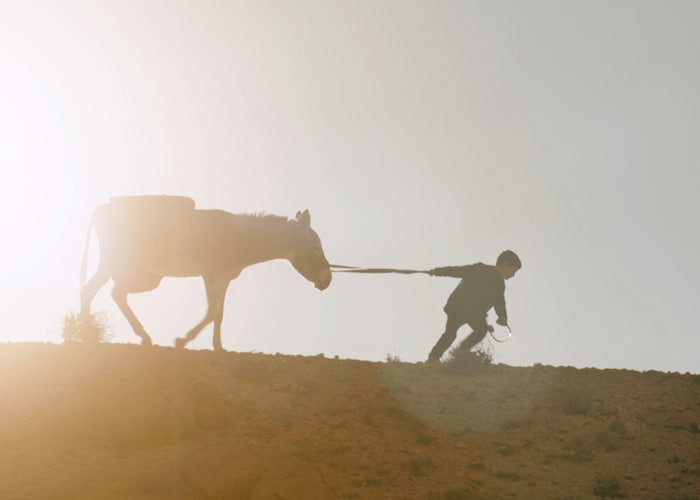
One of the easiest ways to make a successful short is to make a cinematic joke. That is, you film a story that’s essentially a joke, complete with a punchline at the end. The hard part is doing one that’s executed well enough, like any joke, that it’s admired for more than just the reveal. Same as any film with a twist or surprise kicker at the end. And just as great comedians are great storytellers more than just funny wisecrackers, so must short-form filmmakers. Yves Piat is not a great storyteller.
His Oscar nominee, the 17-minute Nefta Football Club, is not an example of really poor storytelling either, but it’s filled with problems. The story initially follows a couple of guys near the Tunisian border of Algeria looking for their donkey. We learn it’s wearing headphones for some reason. Eventually, we learn the headphones are part of the animal’s training; when it hears Adele, it comes home. But one of the guys misheard and played “Hadel” and the donkey didn’t come home.
Okay, that’s sort of funny in that simple kind of mix-up and misunderstanding comedy. But it’s also pretty easy and maybe doesn’t even make any sense for these guys who turn out to be drug smugglers and appear to know each other well enough that this situation of the mistake that kicks off the story feels like a forced invention simply for the sake of this movie and its eventual punchline. Nothing about their characters makes sense, but at least they just disappear from the plot.
Their disappearance is one of the main reasons the film isn’t good. The other is that the central story is far less interesting and also very predictable. Two young brothers find the donkey, which happens to be carrying a load of drugs (you’d think it’d be closely guarded, even if the reason for using it is to avoid association and imprisonment?). The older boy knows it’s drugs and has an idea to make money from it. The younger thinks it’s laundry detergent. Obviously he winds up doing something with it that jeopardizes the older boy’s chance of getting rich. But that something is not clever or funny enough for it to be the end.
Superficially and functionally, I see where Nefta Football Club seems to work. I’m not surprised that it’s won audience awards and made film festival crowds leaving amused. But it’s not smart, doesn’t have characters or stakes worth caring about, and even the final visual punch is clearly overdone, not appropriately sloppily done by kids as it’s supposed to be. There’s just not a lot of logical thinking behind any of the choices in its production. It actually made me angry. There are much better joke-format live-action shorts being put online every day.
4. Saria
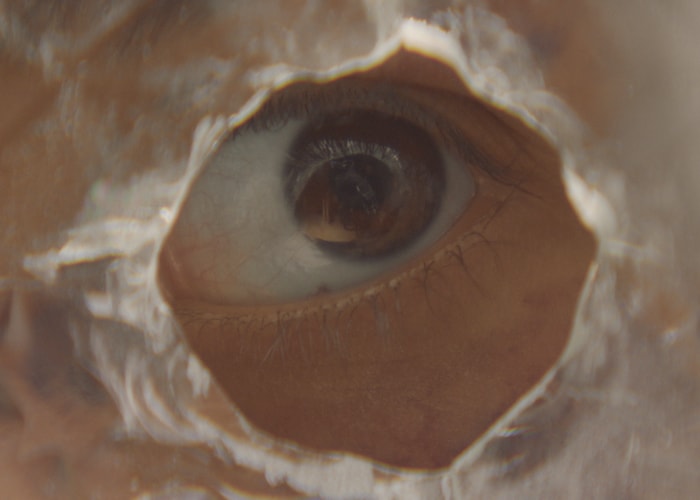
Another kind of live-action short that can be very annoying if done improperly is the true-story issue film. These shorts end with text explaining the reason for its existence, whether there was some real tragedy or other historical context or message about some problem somewhere in the world — or all of the above. Saria goes for it all, in that final pre-credits exposition. And when you read it, you may feel that the film itself is powerful as a result. But it’s not. The text is all that provides the impact.
Saria is about two girls at an orphanage in Guatemala. Some synopses label them as sisters, though that’s not correct if you only pay attention to the film in one of its clearer scenes. The girls want to escape, head to America, which they’ve heard is perfect. The place they’re stuck in is abusive. Eventually we get an implicit sign that the girls are raped, not just beaten. They have a plan to jump off the roof onto a tree — one located so close to the orphanage that the plan is pretty obvious and laughable as something that wouldn’t also be thought of by every child residing there.
But then that’s exactly what happens. The 22-minute film cuts to a sort of riot on the roof and when attacked by police or security or soldiers or whomever, they all make the leap to the tree and make a run for it. Unfortunately, that’s the not end of the story for the main two characters or any of the rest. I won’t reveal the tragic kicker of the conclusion, even though it’s a factual incident that you can find online, but once it happens I don’t know why the two girls we meet in this film are necessary central figures.
Who cares about them versus all of the others at the orphanage? Are they intended to be just representational of all the kids there? That would make them even less special and the whole lot less special as it sets them all up to be just a uniform bunch of victims. This true story is worth being depicted but with more time spent in the orphanage with an ensemble of characters, as well as more of a focus on the villains of the film and why they do what they do. What even is the issue specific to this story that we’re supposed to care about? It comes off as meant to show Americans one of the many awful situations leading to why Latin American people want to flee to come here.
Additionally, there are some questionable shots in Saria that seem awfully leery for a film dealing with the rape of young girls. Writer/director Bryan Buckley is better than this. He’s the only one of this category’s nominees who has been nominated before. His far better live-action short Asad, was recognized at the 2013 Oscars. It didn’t win there. He’s also apparently known as the “King of the Super Bowl” in the advertising world for all the high-profile spots he’s helmed for the event, including one for which he received a DGA Award and has been nominated for others. His 2015 Sundance-sensation feature The Bronze isn’t great but it has some decent moments. I don’t know what happened here with this abridged version of an important story, but its nomination is only encouraging people involved that it wasn’t in error.
3. Brotherhood
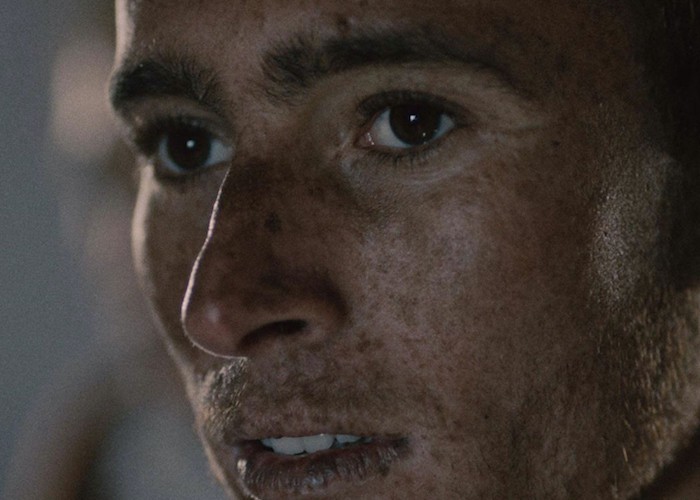
There is nothing particularly bad about Brotherhood, but there’s nothing outstanding about it either. It’s the kind of foreign-language short film that works with substantial themes involving global issues but doesn’t really give us much in terms of a substantial story involving characters we know enough to care about. This one plays out like a sequence from a larger film; it could be the beginning or the end of a fuller plot. At 25 minutes, it’s one act deserving of two more.
But unlike a lot of shorts made these days that could be expanded, Brotherhood does not seem like a proof of concept work desiring an adaptation for a feature. It does technically work as a standalone effort, even if not satisfyingly so. There are unknowns that don’t have to be spelled out. We don’t have to know what happened before or what will happen next to comprehend what’s happening at the present of the narrative at hand. The central point it wants to make is made.
The film, which like Nefta Football Club is set in rural Tunisia (writer/director Meryam Joobeur is Tunisian-American), is about some family drama that winds up resulting in presumptions that cause worse problems for all of them. The oldest son arrives home after having been in Syria for some time. The departure caused some serious strife between the young man and his shepherd father, who isn’t ready to forgive. Especially not when the son has brought home Syrian girl as his pregnant bride.
If only everything had been explained before a certain bad decision is made! That’s not an uncommon situation for a short film, an ironic mistake that turns a story upside down. It’s not the worst sort of plot development out there, even if it makes you sometimes wonder why a character had to hold off clarifying an important bit of information. It happens. But now what? The issue here is that it’s unclear how bad the bad thing is at the end and why. We don’t need to necessarily see what happens next, but it’d be better to have a sense of what would happen next.
2. A Sister (Une Soeur)
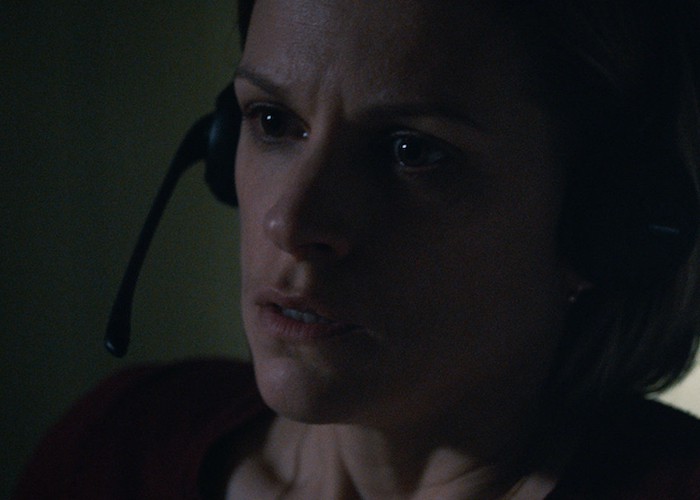
Here’s a short that in theory shouldn’t work for me. A Sister mostly consists of two visuals: a shot from the back of an automobile at night on two people; and a medium close-up shot of an emergency call center worker in a well-lit room. The action consists mainly of a phone call between two of the characters, and the short cuts back and forth between the shots of them. Yet as uncinematic as it would seem, it is an effectively tense work of film.
Written and directed by Delphine Girard, the short maintains a gripping pace, and the tight framing and structure befit the taught situation. We’re as concerned for what’s going on as the operator and almost as in the dark. At the same time, we’re trapped there with the woman in trouble and unsure of what assistance is coming about on the other end of the line. For 16 minutes, we’re anxiously identifying with both women.
And while the dialogue drives a lot of the narrative, it’s a cleverly written conversation because of the severity of the situation and the fact that the woman in trouble can’t speak directly about what she’s attempting to communicate. We don’t learn much about the characters through what’s said but we get to know them very well through the performances (by Selma Alaoui and Veerle Baetens especially), which get across more than just what’s on the page.
This is Girard’s third short film. According to her biographical information in the press notes for A Sister, she’s now working on her first feature, and whatever it is has joined my list of most anticipated movies of the future. Hopefully, as she expands the length of her work, she doesn’t lose her apparent skill for tone and pacing and finding the right balance of visual storytelling and dialogue in even the most expectantly static of scenarios.
1. The Neighbor’s Window
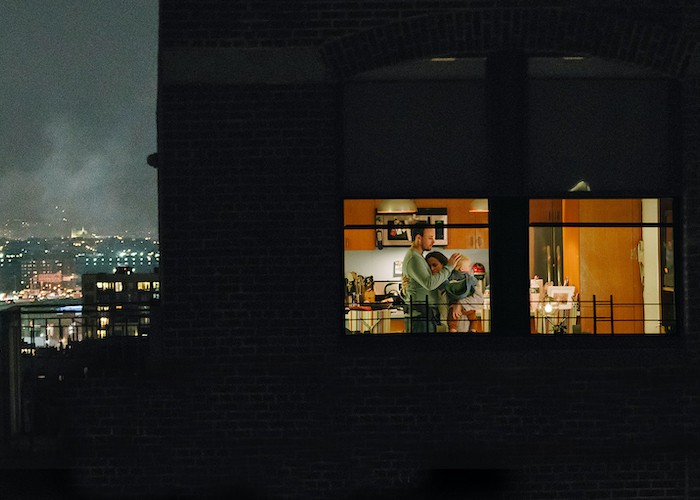
Marshall Curry is becoming one of those constant Oscar nominees who never win, like Amy Adams, but this could very well be his year. Interestingly enough, for something out of his wheelhouse. Curry is primarily a documentary filmmaker and member of the Academy’s documentary branch. His first two nominations came in the Best Documentary Feature category, with Street Fight and then If a Tree Falls: A Story of the Earth Liberation Front. Last year, he was nominated for Best Documentary Short with A Night at the Garden. Now he’s earned his fourth nomination with his narrative debut, The Neighbor’s Window.
Admittedly, I was skeptical. I love Curry’s documentary work, but few documentary filmmakers do well in their transition to dramatic work. Even some of the best have failed miserably. I finally gave in when it was shortlisted. I began watching and wasn’t immediately convinced. The first act of the films seemed like it could be the set-up of a very predictable premise with a sort of punchline ending. Fortunately, it went in an unexpected direction, one that left my eyes in tears rather than rolling upward.
A lot of why it works is thanks to Maria Dizzia, who encapsulates so much truth in marriage and motherhood in such an economical performance. Her character is quickly empathized with, enough that we could just watch her daily life and not need more of a premise than that. It’s a live-in performance that does a lot of work in mere seconds so that we can get on with the comedic-turned-dramatic plot that is there, though.
Her character, Alli, and her husband, Jacob (Greg Keller), take notice of a new young couple who’ve moved in across the street as that couple makes love without care that their large windows offer no concealment. Alli and Jacob become obsessed with the lives of the neighbors, whether they’re exposing themselves physically or emotionally. At times the obsession puts a strain on their own relationship, but maybe it’s also going to inspire their own rekindling of passion in their marriage? Not exactly.
I’m not going to spoil what does happen. I recommend you rush to Vimeo and watch it to not only find out but experience how the story unfolds so brilliantly. Curry, who also wrote the short, is apparently as good a narrative storyteller as he is with documentary, though as I’ve only recently learned, he’s not entirely responsible for conceiving of a script that perfectly turns a grass-is-greener theme on its head. The Neighbor’s Window is based on a true story, which was previously told in podcast form, but Curry did change some of the ending. And it’s that tweak that makes it more thematically poignant.
As a documentary fan who has followed Curry’s career for decades, I would have preferred he win an Oscar for his specialty, but I also think this is the most deserving of the films in this category — though I wouldn’t be terribly disappointed if A Sister wins instead. Of course, my least favorite in this category tends to win, so I won’t be surprised if both favorites lose to one of the other three. Everyone I recommend The Neighbor’s Window to falls in love with it, though, and hopefully, that’s the case with Academy members, whether they’re among the many who personally know Curry and want him to finally win or not.
0 comments:
Post a Comment